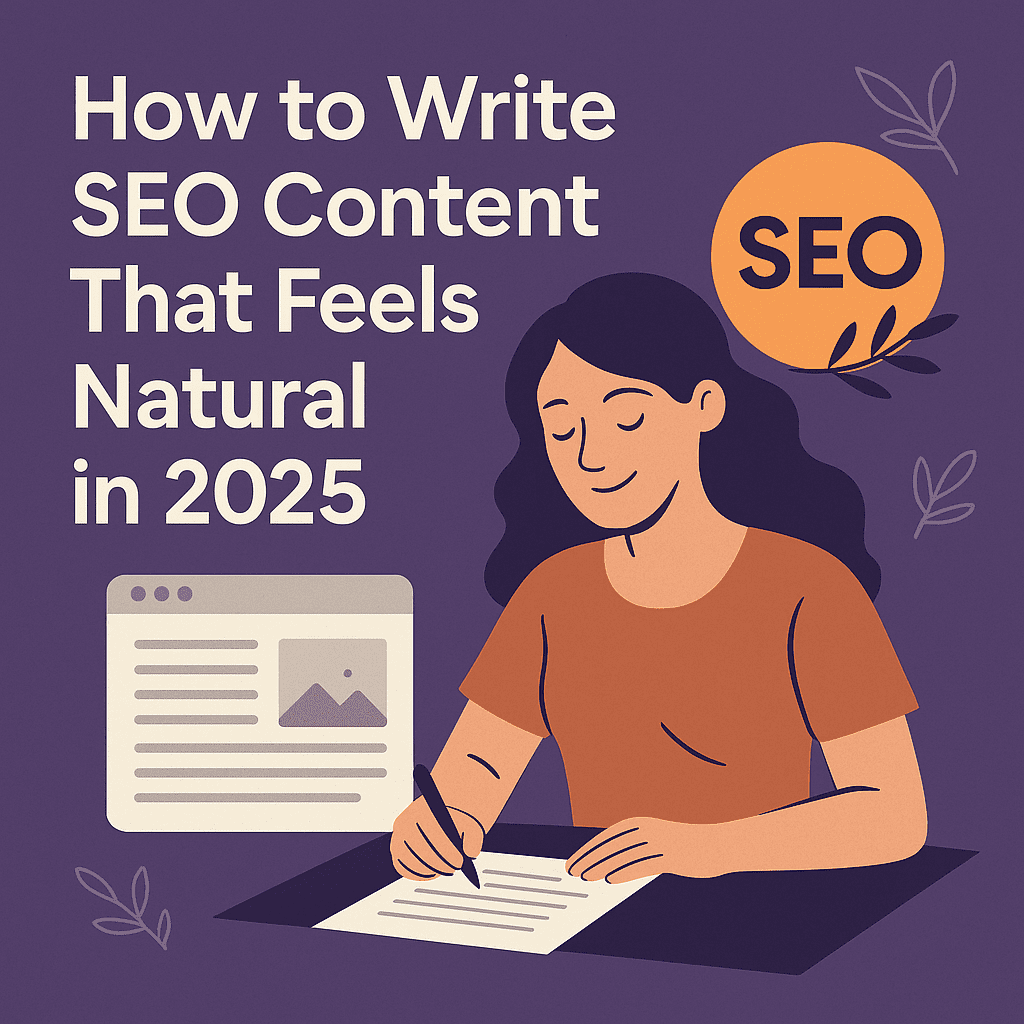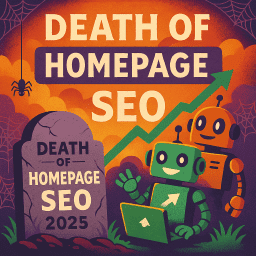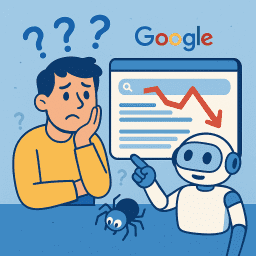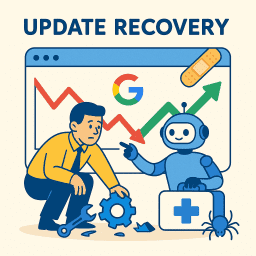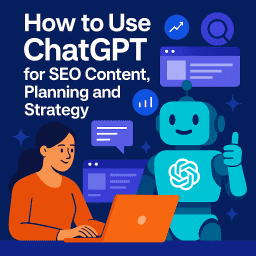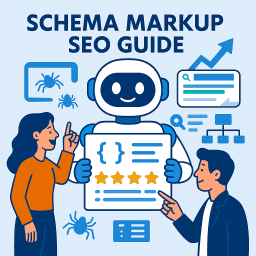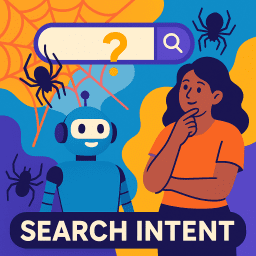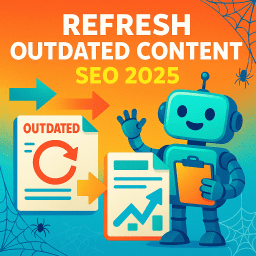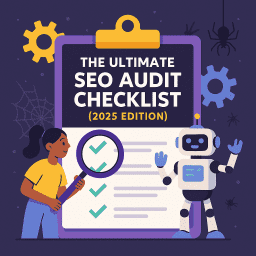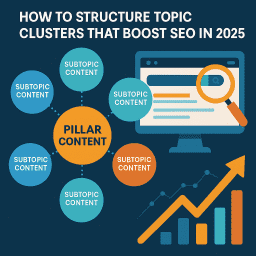How to Write SEO Content That Feels Natural in 2025
✍️ Make your content rank and read naturally
✍️ SEO Content That Sounds Human — And Still Ranks
We’ve all read SEO content that feels … off. Keyword-stuffed, robotic, and clearly written to satisfy search engines, not humans. And that’s a problem—because if real people don’t enjoy reading your content, they’re not going to stick around, link to it, or convert.
In 2025, natural SEO content is the gold standard. It ranks well, but also connects with your audience, answers their questions, and reflects your brand’s voice. Here’s how to write SEO content that actually sounds human.
🔍 Understand What ‘Natural’ Means
Natural content isn’t about ignoring keywords—it’s about using them intelligently. Think of keywords as guideposts, not handcuffs. Your content should:
- ✅ Reflect how real people search and speak
- ✅ Flow logically and read smoothly
- ✅ Offer genuine value—something worth reading
🧠 Start With Intent, Not Keywords
Search intent is more important than keyword density. Before you write, ask: What is this person really looking for?
- 🎯 Are they researching a topic?
- 🛒 Looking to buy something?
- ❓ Trying to solve a problem?
Once you understand the intent, you can write content that addresses it directly—while still weaving in keywords naturally.
✍️ Write Like You Speak (But Polish It)
Good SEO content sounds like a helpful, friendly conversation. Use:
- 🗣️ Clear, everyday language
- 📏 Short sentences and paragraphs
- ❌ Avoid jargon unless it’s necessary (and explain it)
Then go back and tighten it up: fix grammar, remove fluff, and keep the tone consistent.
📌 Use Keywords Naturally
Yes, you still need to include your main keyword and related phrases. But here’s how to make them blend:
- 🧩 Don’t force it—use variations and synonyms
- 📍 Place keywords in titles, headers, meta tags, and naturally in the body
- 💬 Try reading your content aloud—if it sounds weird, rewrite it
🪄 Let AI Help—but Don’t Let It Write Everything
AI tools like ChatGPT can help generate outlines, topic ideas, or even first drafts. But if you publish AI-generated content without a human touch, it’ll sound flat—and possibly get penalised.
Use AI to:
- 🧠 Speed up ideation
- ✍️ Help with structure and style
- 🔍 Identify relevant long-tail keywords
🖼️ Format for Humans, Not Just Google
Walls of text are a huge turnoff. Instead:
- 🔹 Use bullet points, headers, and spacing
- 🔹 Add relevant images, infographics, or videos
- 🔹 Make it skimmable—people scan more than they read
📚 Add Value Beyond the Basics
Lots of content says the same thing. To stand out:
- 💡 Share unique insights or data
- 🧭 Offer practical advice or real examples
- 🗂️ Link to other useful content—internal and external
🔁 Refresh Old Content
Already have SEO content that feels robotic? Update it:
- ♻️ Rewrite awkward keyword phrases
- 🧹 Cut repetition or fluff
- 🆕 Add new insights or stats
Refreshing content is a quick win for improving user experience and SEO performance.
💬 What the Experts Are Saying
- Marie Haynes: “Google rewards content that puts people first—don’t just chase the algorithm.”
- Andy Crestodina: “Great SEO content answers questions before the reader asks them.”
- Aleyda Solis: “The best content ranks because it’s helpful, not because it’s stuffed with keywords.”
✅ Conclusion
You don’t have to choose between SEO and quality. The best content does both: it’s optimised and human, informative and engaging. When you stop writing for the algorithm and start writing for your audience, the rankings tend to follow.
📝 Recap and Clarify: Post-Specific FAQs
What does “SEO content that doesn’t sound like SEO” mean?
It refers to content that ranks well in search engines but reads naturally—like it was written for people, not just for algorithms or keyword stuffing.
Why does keyword-stuffed content hurt SEO?
Google’s algorithms now prioritise helpful, high-quality content. Overloading pages with keywords feels unnatural and can lead to lower rankings or penalties.
Can I still include keywords without sounding robotic?
Yes—use keywords naturally in sentences, focus on synonyms and related phrases, and write like you’re answering real user questions in plain language.
How do I make SEO content more engaging?
Tell stories, use relatable examples, add subheadings and visuals, and write like you’re speaking to one person—not an algorithm.
Is long-form content still effective for SEO?
Yes—if it’s structured, scannable, and genuinely useful. Quality matters more than quantity, so only go long when the topic needs it.
How can I align SEO content with user intent?
Understand what the user is really looking for—informational, navigational, or transactional—and tailor your content to satisfy that intent clearly and efficiently.
Does Google penalise overly optimised content?
Google may demote content that’s stuffed with keywords, lacks originality, or offers poor value to users. Over-optimisation is a common ranking issue in 2025.
What are some signs of bad SEO writing?
Repetitive keyword use, awkward phrasing, thin content, missing answers, and a lack of flow or engagement are all signs of poor SEO copywriting.
Can I use AI tools to help write natural SEO content?
Yes, but you should guide the AI with good prompts and always edit for tone, accuracy, and clarity to ensure it feels human and useful.
What’s the best tip for writing SEO content in 2025?
Write for the reader first—then optimise. Make your content genuinely helpful, engaging, and readable. If it works for people, it will work for search engines too.


